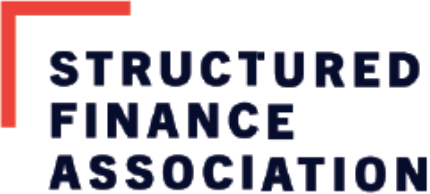SFA’s Amicus Briefs in Two New York Lawsuits Highlight Potential Negative Impact on Lending Markets
SFA, in partnership with the Bank Policy Institute, filed a motion in summer 2019 supporting the defendants’ motion to dismiss in Petersen v. Chase. SFA also filed a brief in support of defendants in the Cohen v. Capital One case in October 2019.
article by Structured Finance Association
Main Takeaway
SFA, in partnership with the Bank Policy Institute, filed a motion in summer 2019 supporting the defendants’ motion to dismiss in Petersen v. Chase. SFA also filed a brief in support of defendants in the Cohen v. Capital One case in October 2019. In both cases, SFA highlights the potential negative impact on lending markets and the cost and availability of credit for U.S. consumers and businesses.
Background
Two lawsuits in New York currently threaten the credit card ABS market. Seeking to leverage a Second Circuit’s decision (in the Madden v. Midland case), plaintiffs filed punitive class actions in the Eastern District of New York against the Capital One securitization vehicles (Cohen v. Capital One) and in the Western District of New York against Chase Card securitization vehicles with Wilmington Trust also named as sole trustee (Petersen v. Chase). Plaintiffs in both cases allege that the securitization vehicles violated New York state laws by collecting interest over New York’s current usury cap of 16% (as the vehicles are not national banks) and seek to recoup the interest payments in excess of that rate and cap rates going forward.
While both cases focus on credit card debt, SFA members warn that the outcome of these cases has the potential to impact all forms of securitized debt by potentially subjecting national banks’ securitization vehicles to overburdensome state-by-state regulation. A favorable outcome for either Plaintiff could have several negative and long-lasting effects on the U.S. securitization and lending market by limiting funding sources and forcing banks to seek more financing away from securitization, thereby impacting their ability to extend credit.
SFA’s Key Points
- Securitization is critical to the health of the lending markets and, more broadly, the national and state economies.
- The structure of the securitization at issue in these cases are consistent with the typical structure of credit card securitizations by other national banks.
- Securitizations create opportunities for investors while reducing costs for borrowing households and businesses.
- Securitization is a widespread practice in the economy.
- Under both federal and New York law, loans originated by national banks are not subject to state usury statutes, even after those loans are securitized.
- Courts have unanimously held that a loan’s securitization does not affect congress’ clear preemption of state usury laws for national banks.
- The application of state usury laws to securitized loans is also preempted under the Dodd-Frank Act because it would significantly interfere with national banks’ power to make and securitize loans.
- Under New York law, a loan that was non-usurious when it was made does not become usurious by reason of its subsequent securitization.
- A ruling that the National Bank Act (NBA) does not preempt state usury laws for loans securitized by national banks will significantly impair lending markets.
- Requiring national banks to comply with dozens of state usury laws would restrict the availability of credit.
- The banking industry and investors have relied on the continued application of NBA preemption to securitizations.
Read SFA’s Capital One and Chase amicus briefs.

